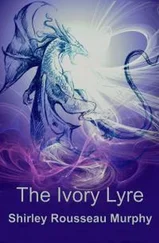She was watching the streets as much as Joe was, glancing up frequently as she counted out money, peering under parked cars for Courtney, under stair steps and into the niches of alleys. Looking for the damned cat, for the headstrong, willful calico that had escaped them. She watched the cats on the rooftops, but Courtney wouldn’t be there in plain sight. She looked, as well, for the cats that had run away with Courtney, the ones that had, earlier, hung around the antiques shop looking in, the ones that had clawed Ulrich.
Sometimes Fay would see a cat down on the street sniffing at the open cans of cat food that Ulrich had set out under steps and behind potted trees. No cat would touch it, though the air was rank with its smell. Ulrich, and DeWayne’s drivers, had waited for hours near the cans, well before daylight, carrying heavy canvas bags; Courtney hadn’t shown, and they were all tired and cranky. As excited as Fay had been about the museum, as hard as she had worked putting the project together, she’d known all along, somewhere down inside, the folly of the endeavor. Maybe they could have made money from it. Or maybe they would have gone under, ended up selling the tapestries for little more than they had in them, selling the cat to some breeder, or for a few dollars as a cured cat skin.
Joe Grey, looking boldly down from the shingles, watched wandering men, some of them DeWayne’s drivers carrying rolled-up canvas bags. Young boys carried bags, too, stuffed in their back pockets, the kids scattered out searching, each with a look of greed wanting to be the one to find the stripe-legged calico for which Ulrich Seaver had offered five thousand dollars. Who knew, he might even increase the rich incentive. Pacing, Joe stopped beside Dulcie in the shade of a roof’s low overhang. Together they watched Fay as she straightened her hair clip: at once they came alert as Varney Luther watched her and then wandered off following a customer who was just leaving the bank, a tall, bent man. When a patrol car appeared moving slowly by the bank between pedestrians, Varney turned away into a camera shop and vanished.
Fay had done that little gesture twice before at intervals, that tweaking of her hair clip, each time as a patron departed stuffing a heavy envelope in his pocket. Each time, as the patron walked briskly away, he was followed.
The first time, Joe Grey had watched Fay say good-bye to the customer, brushing at her hair, the tomcat had paid little attention. The second time she fiddled with her hair clip, the departing customer was clearly followed—and this time Joe followed, too, fast across the shingles, while Dulcie continued to stand watch.
When Joe found the victim two blocks away, the little, pale-haired man stood in the middle of the street looking perplexed, his cell phone dangling in his hand as he talked to an officer in a squad car.
“I don’t know how he knew,” the little man said. “It was just a plain bank envelope, like they give everyone. I put it right in my pocket. I had my back to the windows when the teller counted it. How could he know how much was in it? Teller was very careful, counting it below the counter, slipping the envelope across. How could anyone know I withdrew that kind of money?”
“Which teller did you go to?”
“Well, I . . . a woman. I . . . dark hair, I think.” He looked back toward the bank, but he couldn’t see in from there.
“You want to come on into the station, give us a formal report?”
The little man nodded.
“Slow down when we pass the bank, take a good look, see if you recognize her.”
In front of the bank, the little man stopped his Prius and stared in through the big glass window; but Joe Grey, even from the roof, could see that Fay had left her station and a young blonde had taken her place. The Prius moved on, turning the corner toward the station, the squad car behind it.
“That’s it,” Joe said. “I’m calling Harper.”
Dulcie said, “That rookie’s already figured it out.”
“Maybe. But I’m calling anyway.” He gave her a whisker kiss and took off for home, for the nearest phone. The rain had gone, the daylight was softening, the bank was just closing, the last customers, most of them unaware of any robberies, were hurrying away to supper. That day, five arrests had been made. No one on the street had paid much attention, squad cars were common in the village. The thieves who were caught had been marched to a small, deserted alley, were locked in a paddy wagon and were now on their way to jail. But maybe someone else had seen Fay’s signal, Joe thought with interest. Maybe some citizen had seen the clue repeated earlier, had figured it out, and had already called the station.
If EvaJean took the call, she’d likely laugh and hang up.
Dulcie, watching Joe race away, knowing that Harper would soon have the message—and knowing that Courtney was safe—left the scene herself, striking across the rooftops for home and supper and to tell Wilma what was happening. Kit and Pan, taking her cue, flew up the rising roofs streaking for home, too, wanting their own suppers and maybe a little nap. They would tell Lucinda and Pedric about the bank robberies later. Now that Courtney was secure, their heads were, for the moment, filled with Fay and the robberies; and somehow they could sense more excitement building with the coming evening.
Kit could almost feel cop anger, almost hear gunshots, could feel danger coming as the rain increased for a moment and then drew back, as a streak of moonlight shone behind the east hills then vanished like some kind of celestial prophecy. Pan looked at her and knew that something was brewing. The fluffy tortoiseshell had that talent sometimes, to sense danger, and Pan never doubted her.
And Kit was right; Fay and her little game were only a part of the action.
Even as Joe headed home, making a detour around MPPD, he wished he could just run in and tell Max about Fay’s signal. He drew back into the shadows as a figure moved deep under the awnings and overhangs, a man walking along watching Juana’s condo, a white-haired figure who, even as Joe himself ducked out of the fitful gust, pulled down the hood of his dark slicker over that glimpse of snowy hair—Joe watched him, shivering, then raced for home and a phone.
Max was in his office when a call came through that, because of the robberies, Max thought might be the snitch. He and Detective Garza were interviewing the third bank thief, bringing them up from the jail one at a time, all duly handcuffed and in leg irons, a precaution Max had learned long ago as a young officer after losing an escaped arrestee. So far, information from the robbery victims had given the total cash lost as some two hundred and seventy-five thousand dollars. Now, when the phone rang and Max picked up, Garza caught the chief’s look, and called two deputies to usher the arrestee back to the jail.
On the other end of the line was a sheriff in Texas, Luke Wilson, whom Max knew well. He liked hearing Luke’s Texas drawl. “All useless information, Max, but I thought I’d call anyway. DeWayne Luther was spotted outside Houston, taken in to a substation. One more fiasco. They printed him, did a DNA. They had to release him, they had the wrong man. You picked a good one, a BOL with a hundred doubles.”
“I’d like to lock up all the doubles until we catch this guy.” How could there be so many tall, white-haired younger men in the world that people would mistake for one wanted felon.
They talked for a while about old times, about their ranches, their horses. Max enjoyed the contact with his old friend, but he wasn’t happy. These misguided identifications put him in such a bad temper that when he got home, when he and Charlie sat down to supper and the phone rang, even if the voice was that of his favorite snitch, he almost banged down the phone.
Читать дальше
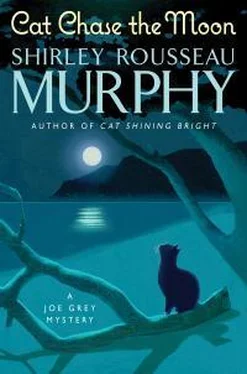
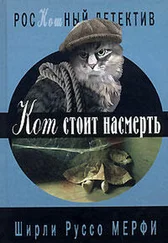
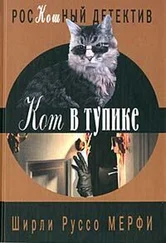
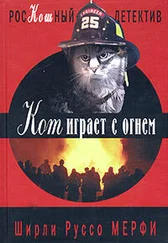

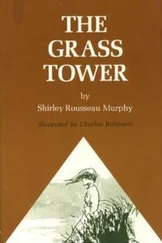
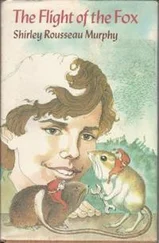

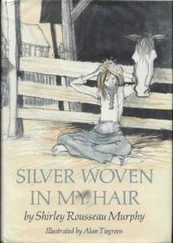
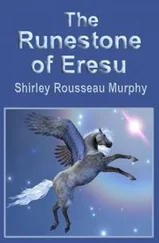
![Ширли Мерфи - The Shattered Stone [calibre]](/books/436059/shirli-merfi-the-shattered-stone-calibre-thumb.webp)

